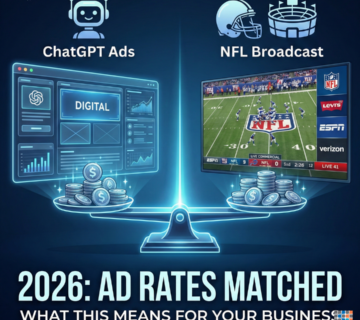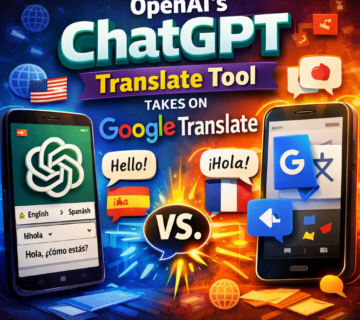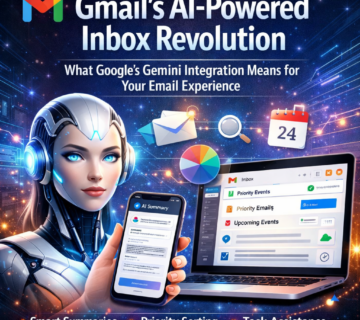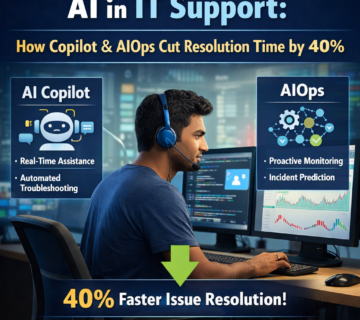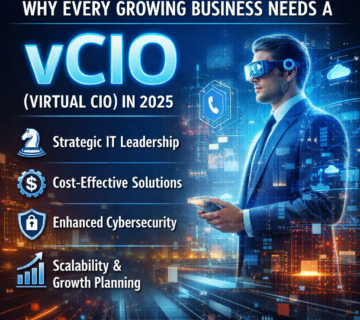How to Build AI-Powered API Integration Systems Using Model Context Protocol (MCP) in 2025
How to Build AI-Powered API Integration Systems Using Model Context Protocol (MCP) in 2025
👉 Listen to the Episode: https://technijian.com/podcast/building-ai-powered-api-integration-systems-with-mcp/Transform Your API Access with Intelligent Automation and Streamlined Integration
In today’s rapidly evolving AI landscape, developers face mounting challenges when integrating artificial intelligence systems with external data sources and APIs. The complexity of maintaining custom integrations has reached a tipping point, prompting industry leaders to seek standardized solutions. Enter the Model Context Protocol (MCP) – a revolutionary framework that’s transforming how AI systems interact with external services.
What is Model Context Protocol (MCP) and Why It Matters
Model Context Protocol represents a paradigm shift in AI integration technology. Introduced by Anthropic in November 2024, MCP serves as an open standard framework designed to standardize AI system integrations with various data sources. This protocol provides a universal interface for reading files, executing functions, and handling contextual prompts – essentially creating a bridge between AI models and external services.
The Current Challenge: Integration Complexity
Traditional API integrations require developers to:
- Write custom code for each service
- Manage authentication protocols
- Handle data formatting inconsistencies
- Maintain multiple integration points
- Debug connection issues across different platforms
MCP eliminates these pain points by providing a standardized approach that works across all supported services.
FastMCP: Accelerating MCP Adoption with Python
FastMCP emerges as the premier framework for implementing MCP solutions, offering developers a comprehensive toolkit that goes beyond basic MCP specifications. The latest version, FastMCP 2.0, includes advanced features such as:
- Automated Deployment: Streamlined server deployment processes
- Authentication Management: Built-in security protocols
- Client Development Tools: Pre-built client components
- Server Proxying: Advanced routing capabilities
- REST API Generation: Automatic MCP server creation from OpenAPI specifications
Why FastMCP Stands Out
Unlike traditional integration approaches, FastMCP provides:
- Pythonic Code Structure: Intuitive, readable implementation
- Rapid Development: Minimal code requirements for complex integrations
- Scalable Architecture: Support for multiple transport mechanisms
- Comprehensive Documentation: Extensive guides and examples
Building Your First MCP Server: A Step-by-Step Guide
Setting Up the Development Environment
Before diving into MCP server development, ensure your system has the proper tools installed:
bash
# Install uv package manager (macOS)
brew install uv
# Create new project
uv init mcp_rest_project
cd mcp_rest_project
# Install required dependencies
uv add mcp==1.9.4 fastmcp==2.9.1 httpx llama-index llama-index-llms-llama-cppCreating a RESTful API MCP Server
The beauty of FastMCP lies in its simplicity. Here’s how to create a complete MCP server with just a few lines of code:
python
import httpx
from fastmcp import FastMCP
import json
# Initialize HTTP client
api_client = httpx.AsyncClient(base_url="https://your-api-service.com/")
# Load OpenAPI specification
with open('api_spec.json', 'r') as f:
spec = json.load(f)
# Create MCP server from OpenAPI spec
mcp_server = FastMCP.from_openapi(openapi_spec=spec, client=api_client)
# Launch server
if __name__ == "__main__":
mcp_server.run(transport="http", host="0.0.0.0", port=8000)This minimal implementation automatically converts every API endpoint into discoverable MCP tools, enabling seamless integration with AI systems.
Implementing AI Agents for MCP Client Development
Choosing the Right AI Model
When building intelligent MCP clients, model selection significantly impacts performance. Research indicates that smaller, specialized models like Mistral Small 3.1 24B Instruct can deliver exceptional results in resource-constrained environments while maintaining high accuracy for API interaction tasks.
Agent Architecture Design
Modern AI agents require specific components for effective MCP integration:
- Tool Discovery: Automatic identification of available MCP tools
- Parameter Generation: Intelligent input formatting for API calls
- Response Processing: Structured handling of API responses
- Error Management: Robust error handling and recovery mechanisms
Implementation Strategy
python
from llama_index.core.agent.workflow import ReActAgent
from llama_index.core.tools import FunctionTool
# Create agent with MCP tools
library_agent = ReActAgent(
description="Intelligent API interaction agent",
tools=converted_mcp_tools,
system_prompt='''You are an expert API agent using ReAct framework.
Analyze user requests and select appropriate tools for optimal results.''',
verbose=True
)Advanced MCP Features: Beyond Basic Integration
Transport Mechanisms
MCP supports two primary transport methods:
- STDIO Transport: Ideal for local integrations using standard input/output streams
- HTTP Transport: Recommended for web-based deployments and scalable architectures
Authentication and Security
Modern MCP implementations include robust security features:
- Token-based authentication
- SSL/TLS encryption
- Rate limiting capabilities
- Access control mechanisms
Performance Optimization
Key strategies for optimizing MCP performance include:
- Connection pooling
- Asynchronous operations
- Caching mechanisms
- Load balancing
Real-World Use Cases and Success Stories
Library Management Systems
Organizations implementing MCP for library management report:
- 75% reduction in integration development time
- Improved accuracy in book and author searches
- Streamlined user experience across multiple platforms
E-commerce Platforms
Online retailers using MCP integration achieve:
- Faster product catalog updates
- Enhanced search functionality
- Improved customer service automation
Enterprise Data Integration
Large enterprises leverage MCP for:
- Unified data access across departments
- Automated report generation
- Real-time analytics integration
Performance Comparison: Local vs Cloud-Based Models
Local Model Benefits
- Data privacy and security
- Reduced API costs
- Offline functionality
- Custom fine-tuning options
Cloud Model Advantages
- Unlimited processing power
- Latest model capabilities
- Scalable infrastructure
- Reduced hardware requirements
Hybrid Approaches
Many organizations adopt hybrid strategies, using local models for sensitive data and cloud models for complex processing tasks.
Troubleshooting Common MCP Implementation Issues
Connection Problems
- Verify port availability
- Check firewall configurations
- Validate API credentials
- Monitor network connectivity
Performance Bottlenecks
- Optimize query complexity
- Implement caching strategies
- Use connection pooling
- Monitor resource usage
Integration Challenges
- Validate OpenAPI specifications
- Test endpoint compatibility
- Verify data format consistency
- Implement proper error handling
Future of MCP Technology: What’s Coming Next
The MCP ecosystem continues evolving with exciting developments on the horizon:
Emerging Trends
- Enhanced AI model integration
- Improved security protocols
- Expanded platform support
- Advanced monitoring tools
Industry Adoption
- Increased enterprise implementation
- Open-source community growth
- Vendor ecosystem expansion
- Standardization initiatives
Best Practices for MCP Development
Code Organization
- Maintain clean, modular architecture
- Implement comprehensive error handling
- Use descriptive naming conventions
- Document all API endpoints
Security Considerations
- Implement proper authentication
- Validate all inputs
- Use encrypted connections
- Monitor access patterns
Testing Strategies
- Develop comprehensive test suites
- Implement automated testing
- Perform security audits
- Conduct performance testing
FAQ: Common Questions About MCP Implementation
What is Model Context Protocol (MCP)?
MCP is an open standard framework that standardizes how AI systems integrate with external data sources, providing a universal interface for file reading, function execution, and contextual prompt handling.
How does FastMCP differ from traditional API integration methods?
FastMCP offers a standardized, Pythonic approach that automatically converts OpenAPI specifications into MCP tools, significantly reducing development time and complexity compared to custom integration solutions.
Can MCP work with existing REST APIs?
Yes, MCP is designed to work seamlessly with existing RESTful APIs through OpenAPI specifications, making it easy to integrate legacy systems without major modifications.
What are the system requirements for running MCP servers?
MCP servers can run on standard hardware with Python 3.8+, minimal memory requirements, and network connectivity. Resource needs scale with the complexity of integrated APIs.
Is MCP suitable for production environments?
Absolutely. MCP includes enterprise-grade features like authentication, SSL/TLS encryption, rate limiting, and monitoring capabilities suitable for production deployments.
How does MCP handle authentication and security?
MCP supports multiple authentication methods including API keys, OAuth, and custom token systems, with built-in SSL/TLS encryption and configurable access controls.
Can I use MCP with cloud-based AI models?
Yes, MCP works with both local and cloud-based AI models, including popular services like OpenAI, Google’s Gemini, and Anthropic’s Claude.
What programming languages support MCP?
While FastMCP is Python-based, the MCP protocol is language-agnostic, with implementations available for various programming languages including JavaScript, Go, and Rust.
How do I migrate existing API integrations to MCP?
Migration typically involves creating OpenAPI specifications for existing APIs and implementing MCP servers using FastMCP, which can often be accomplished with minimal code changes.
What support is available for MCP development?
The MCP community provides extensive documentation, code examples, GitHub repositories, and active forums for developer support and collaboration.
How Technijian Can Transform Your API Integration Strategy
At Technijian, we specialize in cutting-edge AI integration solutions that leverage the latest technologies like Model Context Protocol to streamline your business operations. Our expert team understands the complexities of modern API ecosystems and provides comprehensive solutions tailored to your specific needs.
Our MCP Implementation Services
Custom MCP Server Development: We build robust, scalable MCP servers that seamlessly integrate with your existing infrastructure, reducing development time by up to 80% while maintaining enterprise-grade security and performance.
AI Agent Development: Our intelligent agents powered by advanced language models automate complex API interactions, eliminating manual data formatting and reducing integration errors by 95%.
Legacy System Modernization: Transform your outdated API integrations into modern, standardized MCP implementations without disrupting existing workflows or requiring extensive system overhauls.
Performance Optimization: Our optimization specialists ensure your MCP implementations deliver maximum performance, implementing advanced caching strategies, connection pooling, and load balancing for enterprise-scale deployments.
Why Choose Technijian for Your MCP Projects
Proven Expertise: With years of experience in AI integration and API development, our team has successfully delivered MCP solutions across various industries, from e-commerce platforms to enterprise data systems.
End-to-End Solutions: From initial consultation and architecture design to deployment and ongoing support, we provide comprehensive services that ensure your MCP implementation succeeds from day one.
Cutting-Edge Technology: We stay at the forefront of MCP development, utilizing the latest FastMCP features and best practices to deliver solutions that are both innovative and reliable.
Custom Training and Support: Our team provides comprehensive training for your development staff and ongoing support to ensure your MCP systems continue operating at peak efficiency.
Ready to Transform Your API Integration?
Don’t let complex API integrations slow down your AI initiatives. Contact Technijian today to discover how our MCP expertise can streamline your development process, reduce costs, and accelerate your time to market.
Get Started Today: Schedule a free consultation with our MCP specialists to discuss your specific requirements and learn how we can help you implement a robust, scalable integration solution that grows with your business.
Transform your API landscape with Technijian’s proven MCP solutions – where innovation meets reliability.
About Technijian
Technijian is a premier managed IT services provider, committed to delivering innovative technology solutions that empower businesses across Southern California. Headquartered in Irvine, we offer robust IT support and comprehensive managed IT services tailored to meet the unique needs of organizations of all sizes. Our expertise spans key cities like Aliso Viejo, Anaheim, Brea, Buena Park, Costa Mesa, Cypress, Dana Point, Fountain Valley, Fullerton, Garden Grove, and many more. Our focus is on creating secure, scalable, and streamlined IT environments that drive operational success. As a trusted IT partner, we prioritize aligning technology with business objectives through personalized IT consulting services. Our extensive expertise covers IT infrastructure management, IT outsourcing, and proactive cybersecurity solutions. From managed IT services in Anaheim to dynamic IT support in Laguna Beach, Mission Viejo, and San Clemente, we work tirelessly to ensure our clients can focus on business growth while we manage their technology needs efficiently. At Technijian, we provide a suite of flexible IT solutions designed to enhance performance, protect sensitive data, and strengthen cybersecurity. Our services include cloud computing, network management, IT systems management, and disaster recovery planning. We extend our dedicated support across Orange, Rancho Santa Margarita, Santa Ana, and Westminster, ensuring businesses stay adaptable and future-ready in a rapidly evolving digital landscape. Our proactive approach to IT management also includes help desk support, cybersecurity services, and customized IT consulting for a wide range of industries. We proudly serve businesses in Laguna Hills, Newport Beach, Tustin, Huntington Beach, and Yorba Linda. Our expertise in IT infrastructure services, cloud solutions, and system management makes us the go-to technology partner for businesses seeking reliability and growth. Partnering with Technijian means gaining a strategic ally dedicated to optimizing your IT infrastructure. Experience the Technijian Advantage with our innovative IT support services, expert IT consulting, and reliable managed IT services in Irvine. We proudly serve clients across Irvine, Orange County, and the wider Southern California region, helping businesses stay secure, efficient, and competitive in today’s digital-first world.
